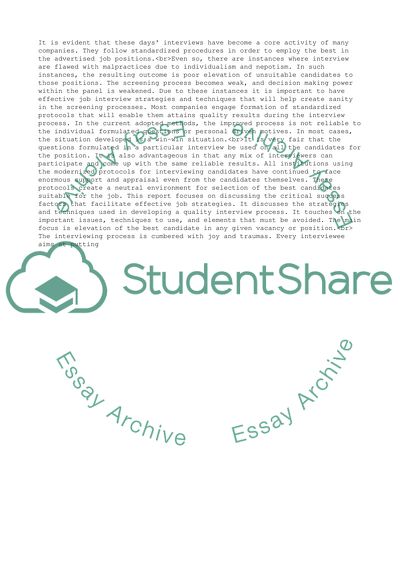Cite this document
(Effective job interview strategies and techniques Essay, n.d.)
Effective job interview strategies and techniques Essay. https://studentshare.org/human-resources/1813108-effective-job-interview-strategies-and-techniques
Effective job interview strategies and techniques Essay. https://studentshare.org/human-resources/1813108-effective-job-interview-strategies-and-techniques
(Effective Job Interview Strategies and Techniques Essay)
Effective Job Interview Strategies and Techniques Essay. https://studentshare.org/human-resources/1813108-effective-job-interview-strategies-and-techniques.
Effective Job Interview Strategies and Techniques Essay. https://studentshare.org/human-resources/1813108-effective-job-interview-strategies-and-techniques.
“Effective Job Interview Strategies and Techniques Essay”. https://studentshare.org/human-resources/1813108-effective-job-interview-strategies-and-techniques.


